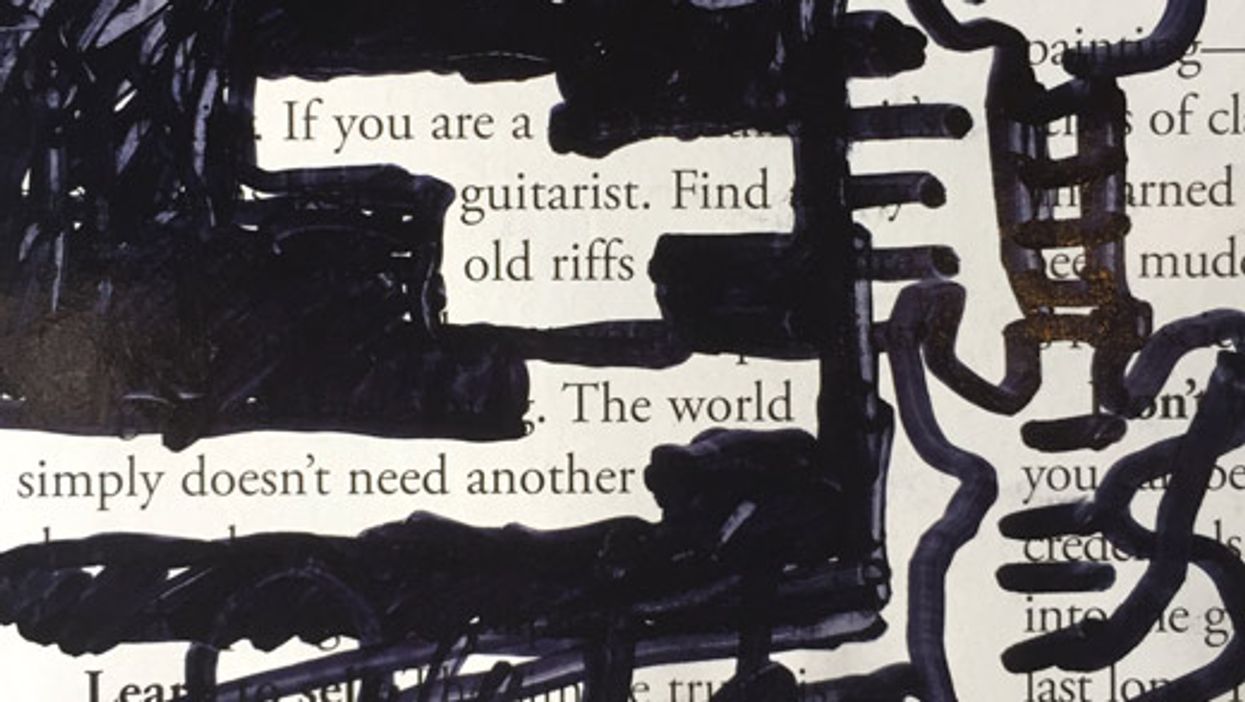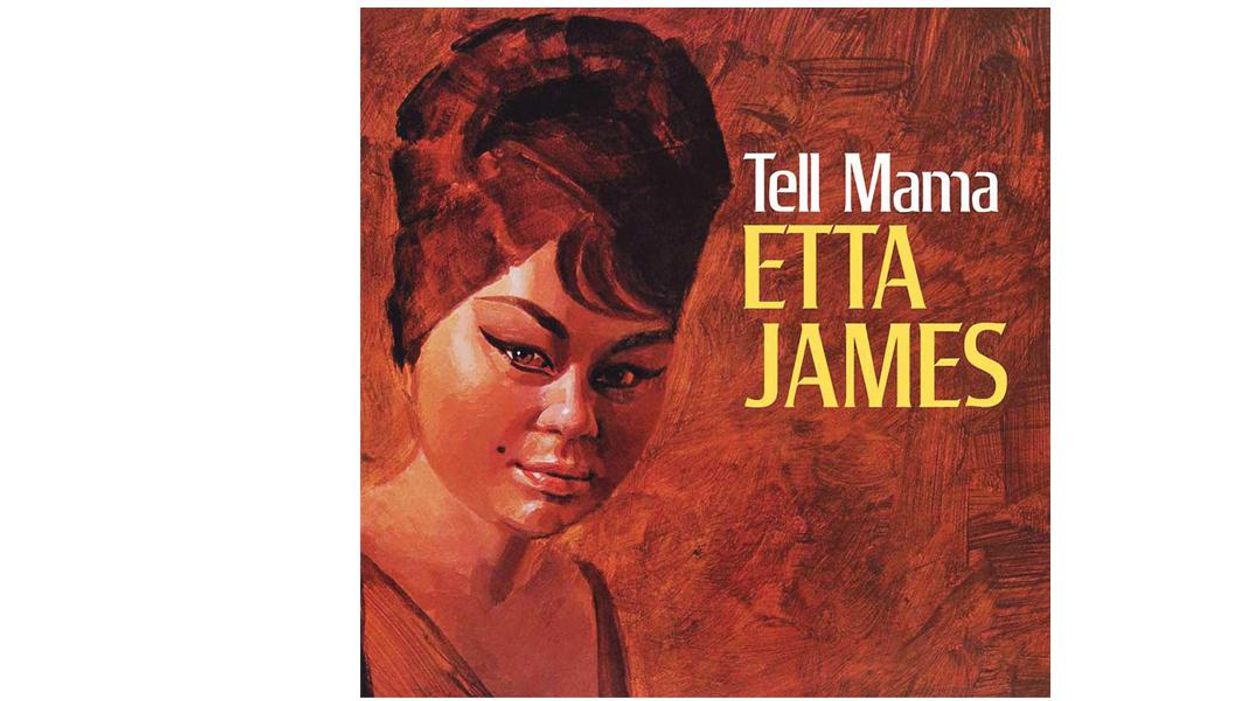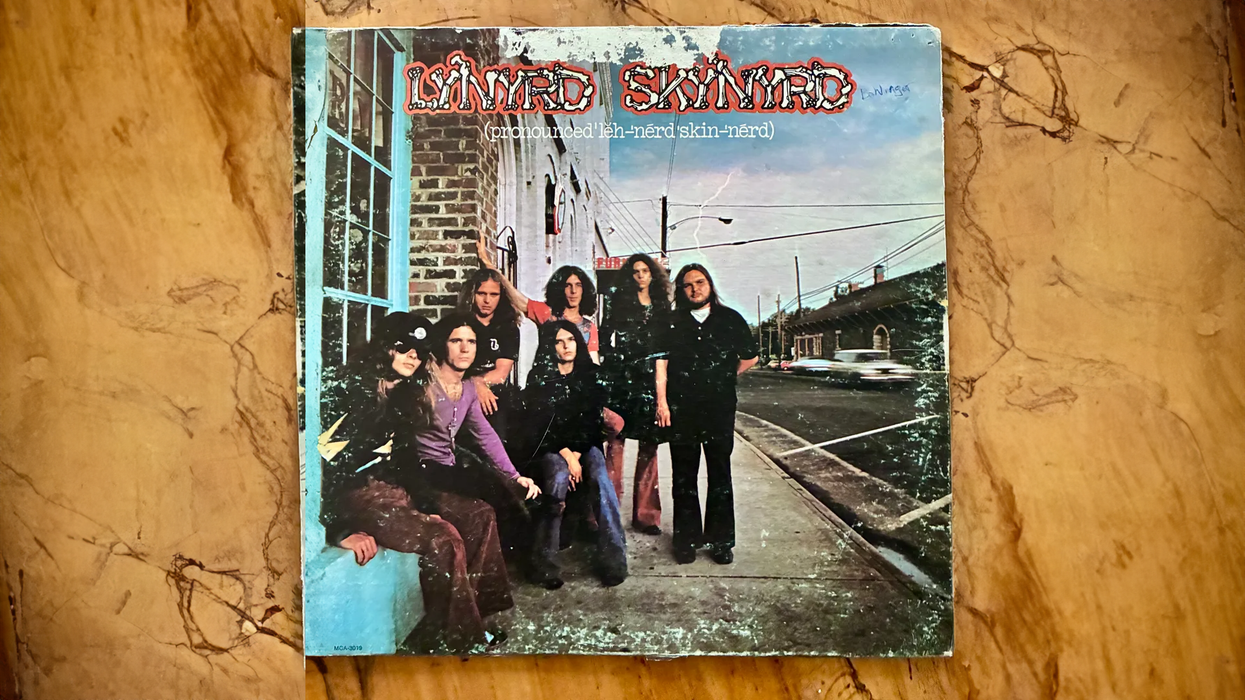There's a songwriter from my hometown named Kostas (one name), who went from making about $10k a year playing honky tonks around Montana to earning six-figure quarterlies from BMI. When Kostas and I ran together, I had a songwriting deal, was hovering around the $10k mark, and was desperate for an income upgrade.
One night at a party in Nashville, Kostas played two songs he'd written the night before. One was “Blame It on Your Heart," which soon became a No. 1 hit for Patty Loveless. The other, “Ain't That Lonely Yet," quickly became a No. 2 smash for Dwight Yoakam. Even though the songs were freshly minted and being performed by a buzzed guy with an out-of-tune acoustic in a crowded living room, they sounded like classics. I sat there, mouth agape, staring blankly ahead—knowing I would never come up with anything that good. I was considering sneaking back home and getting a gig roofing houses or working at Walmart. Kostas noticed my just-got-punched-in-the-gut look and said, “Steal from one person and you are a thief. Steal from everyone and you are a genius."
His point was clear. Kostas spent decades voraciously listening to music, learning it, playing it in clubs, and making it his own. As a writer, he drew from the collective catalogs of his favorite artists and then twisted, cut, pasted, and combined parts into these beautiful Frankenstein monster hits. Kostas' songs were beautifully crafted bastard love children of all Top 40 music from the past 30 years. I later learned that Kostas' advice was as unoriginal as his songs. Stealing has been a standard of the industry for centuries.
Por ejemplo: Igor Stravinsky, whose The Rite of Spring has influenced 100 years of music, said, “A good composer does not imitate; he steals." And much of The Rite's foundation rests on elements borrowed from Russian folk music.
Even David Bowie, whose ideas seemed to come from outer space, said, “[I'm] more like a tasteful thief. The only art I'll ever study is stuff that I can steal from. I do think that my plagiarism is effective. Why does an artist create, anyway? The way I see it, if you're an inventor, you invent something that you hope people can use."
When you look at music that's currently popular, usually it's not hard to tell where it came from. Sturgill Simpson, though technically an independent artist, is selling better than most major-label acts, earning lots of love from the press, sold-out tours, and plenty of dough-re-mi. When I first heard Simpson's Metamodern Sounds in Country Music, it bothered me how Waylon Jennings he went with his vocals and production. In fact, it was so Waylon that Simpson even had two Waylon alumni on the recording: Hargus “Pig" Robbins on piano and Robby Turner on pedal steel. But once I got past my naysaying, I recognized this was great music that wore its influences proudly.
In 2016, Simpson released A Sailor's Guide to Earth. Critics marveled at his fresh new sound, which diverted wildly from his earlier work. It sounded so fresh—until my guitar buddy Travis Bettis played it next to “Shaky Ground"-era Delbert McClinton. Sturgill was still stealing. He'd just found a different source from the same decade. Part of Sturgill's genius is his ability to recognize gems hiding in plain sight. We all had access to this material, but none of us copied it like he did.
This reminds me of something I read in J.K. Rowling's Harry Potter and the Chamber of Secrets: “It is our choices … that show what we truly are, far more than our abilities."
We're constantly surrounded with data, art, stories, songs, poems, and what-have-you. What resonates with us, and what we choose to carry along in our minds, to a certain extent, defines who we are. In short, you are what you eat.
Speaking of eating, SoulPancake, a book by Rainn Wilson, had a cool exercise that will teach you to steal. In fact, the volume is packed with creativity inspiring exercises, but, because I'm lazy, I skipped most of them except for a section on redactive, blackout poetry.
Redaction is a term used to describe the removal of some of a document's contents, replacing it typically with black markings that hide the “forbidden" type. The term is also sometimes used to describe the process by which multiple source texts are combined and altered slightly to make a single document.
Here's what you do. Grab a black Sharpie and a hard copy of Premier Guitar (or some inferior publication). Open randomly to any page, then circle the first word or phrase that jumps out at you. Then find the next word or phrase that seems to logically follow and circle that. Continue until you have something that resembles a thought, and then black out the rest of the page. You will be amazed at how creative you are. You could literally write an entire book of poems or an album full of lyrics with this kind of redaction.
We tend to think of creativity as birthing fresh ideas rather than rehashing old ideas. Turns out, it's both. Just as we are a product of both our mother's and father's DNA, art carries the DNA of its ancestors. So, get out there and steal from the best.


















